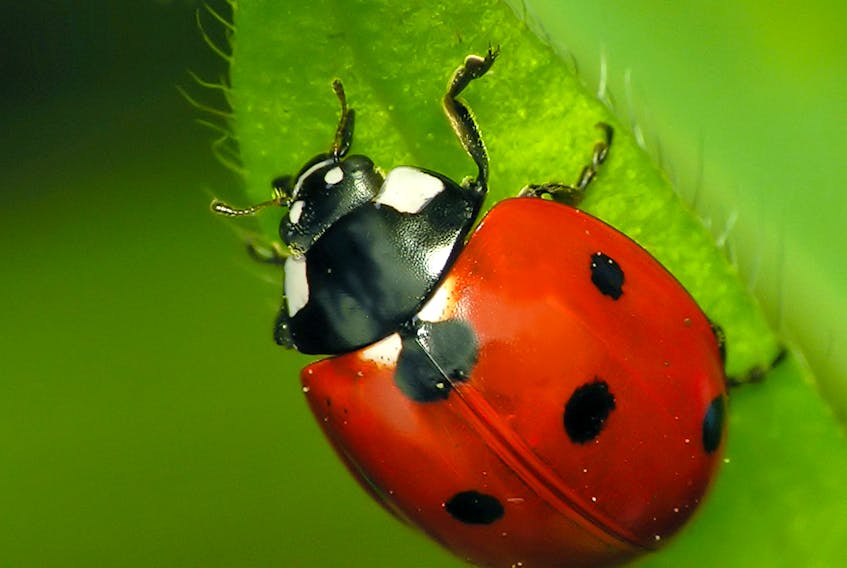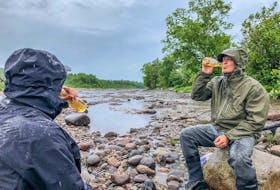Much of the information on the internet about pesticides is polarized, with praise from commercial producers and equally negative claims from naysayers.
As with most things, black and white portrayals are seldom useful.
There are two groups of pesticides that are typically used in yard care: insecticides to control bugs and herbicides to control unwanted plants. Here I share my approach to insecticide use and will follow at a later date with herbicides.
I have my own inclinations. I follow a basic biological principle that supports using natural materials that have been in the ecosystem for a long time. So synthetic (created by humans) products will always be my second choice, to be used when natural-based solutions fail.
We don’t fully understand the effects of synthetics because they are new to the ecosystem. We know that DDT is a synthetic product created for insect control that, when it got into the food chain, caused the unintended consequence of thinning predator bird’s egg shells and the decline of their populations in the U.S.
My personal experience: Mom’s prized crab apple tree — her first purchased apple was almost leafless, devoured by countless larval worms hanging from threads like decorations on a Christmas tree. She bought the insecticide and gave me the task, but I hesitated. The next day, a flock of waxwings, rare here at the time, descended and ate up all the worms. I often think that had I sprayed, I would have poisoned the whole flock of waxwings.
Any product can bring on unintended effects. Most insecticides will kill our pests as well as our pollinators, and without pollination, we don’t get fruits and seed-bearing vegetables like tomatoes, cucumbers, beans, peas and spices.
As well, insecticides indiscriminately kill the insects in the garden that prey upon garden pests, like our darling ladybugs, and we mustn’t kill our allies.
I try to engage practices that prevent infestation:
• Sanitize by removing dead and diseased plant material and maintaining space between plants.
• Bait pests with traps.
• Repel insects by growing "smelly" plants.
• Use row covers to resist pests that arrive as flies.
• Time plantings to avoid bug infestations
• Break the pest life cycle by taking a year off from a vegetable with persistent pest troubles.
I do not say to avoid spraying insecticides, just delay to the last option so that you keep to a minimum their associated problems. I was sent out to the garden with potato bug powder when I was little, and now I go out with a can of soapy water and handpick the bugs.
If you need to spray, important considerations are: don’t spray just before rain or when it is windy (there’s often a morning and evening calm). Research the stage when the pest is most susceptible. Consider what is good for you (don’t put a toxic material on something you’re going to eat). And please follow the instructions, no need to be too creative.
A quick Google search provides recipes for a number of natural and homemade insecticides. Oil, soap, neem oil and diatomaceous earth can all be carefully sprayed or sprinkled without damaging your plants or food chain. I have no experience with bacterial control of insects, but it warrants examination.
Other options are prepared from common garden plants. Garlic, chili peppers and tomato leaves can each be pureed with water in a blender and the strained juice diluted and sprayed for insect control. Added oils or soaps assist in it sticking to the plant.
Happy gardening!
Caroline Cameron lives in Strathlorne, Inverness County and offers gardening and hiking guide services around Cape Breton Island. She welcomes your gardening comments and questions by email or on Facebook at Nature/Nurture Gardening & Hiking.









